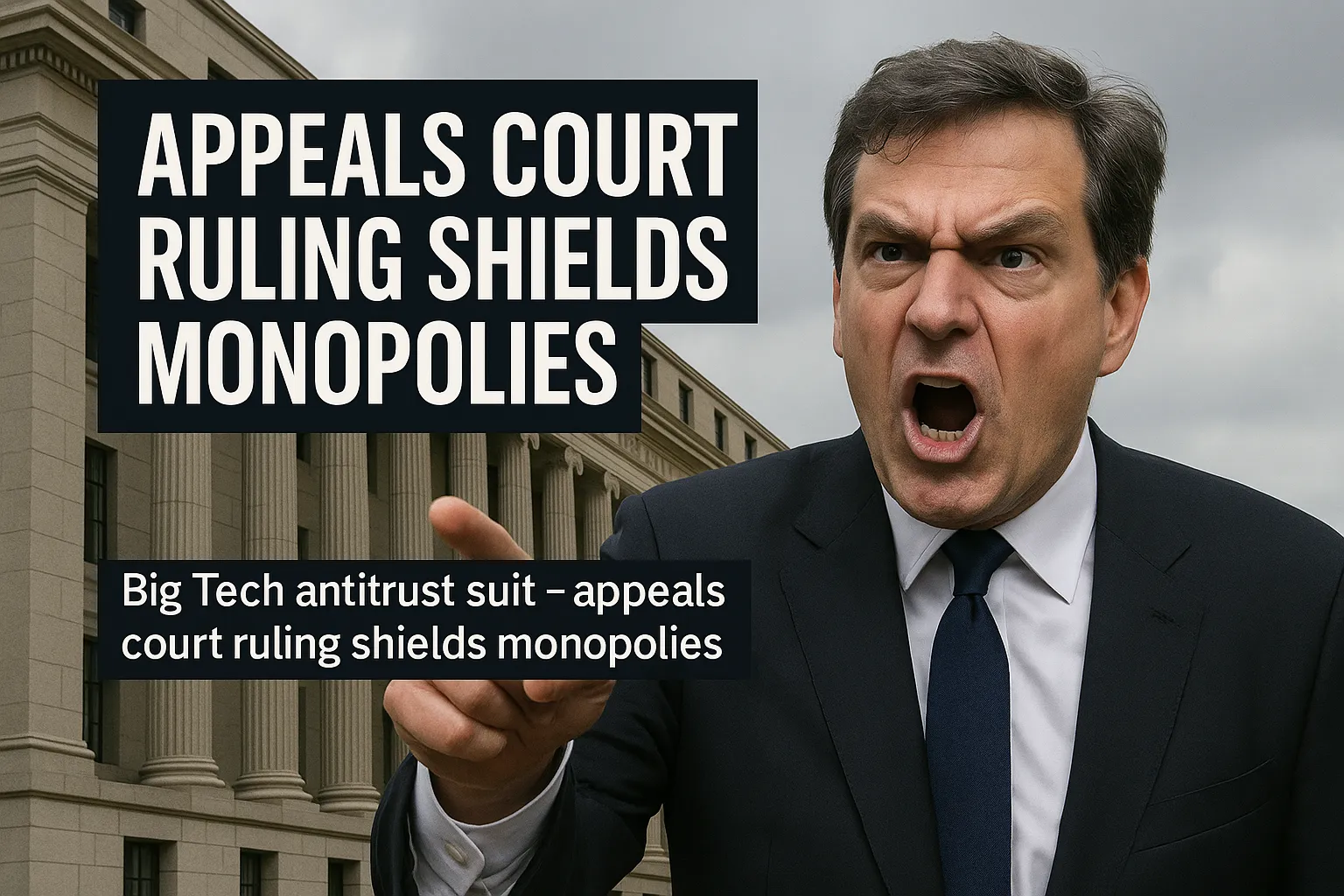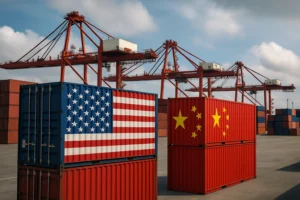The Big Tech antitrust suit has been gutted. A federal appeals court dismissed crucial sections of the case against Google and Meta, claiming regulators failed to prove harm. For Silicon Valley, this outcome looks like victory. For citizens and regulators, it exposes a broken system that cannot restrain concentrated power.
Context: The official narrative
According to the Washington Post, judges ruled that antitrust officials presented insufficient evidence. Regulators argued that Google and Meta abused their dominance, suppressed rivals, and harmed consumers. The court disagreed.
Corporate lawyers praised the decision, calling it proof that the case was weak. Investors cheered as stocks climbed. Lobbyists framed it as another “overreach” defeated. At first glance, it appears the law worked. However, that story hides deeper flaws.
Oppositional Argument: Why the ruling is dangerous
The ruling reflects not strength but weakness. Courts apply outdated standards, focusing narrowly on consumer prices. Because Google and Meta offer free services, judges concluded users weren’t harmed. Yet harm in the digital age comes through data extraction, loss of innovation, and monopoly control.
The Big Tech antitrust suit did not collapse because regulators lacked evidence. It collapsed because the courts refuse to recognize new forms of power. This outcome protects monopolies while punishing competition.
Analytical Breakdown: Causes and consequences
The erosion of antitrust law
For decades, US courts narrowed the scope of antitrust enforcement. In the mid-20th century, regulators boldly dismantled AT&T and challenged IBM. Since the 1980s, however, the “consumer welfare” test reduced cases to price effects. Digital monopolies exploit this framework because their products appear free.
Lobbying and influence
Google, Meta, Amazon, and Apple spend billions on lobbying. They recruit ex-regulators, finance think tanks, and influence academics. Over time, these investments pay off. The appeals court’s reasoning reflects this environment.
Consequences of the ruling
- Regulators suffer humiliation, losing credibility.
- Big Tech grows stronger, facing fewer checks.
- Citizens remain trapped in ecosystems that harvest data while eliminating alternatives.
As a result, the decision doesn’t just end one lawsuit. It signals that the American legal system is unprepared to confront 21st-century monopolies.
Human Perspective: Who really pays the price
Consider a small publisher dependent on Google Ads. Revenues shrink as Google dominates, leaving local outlets to collapse. Think about startups like Snapchat, which saw Meta copy its features and use scale to overwhelm competition. These are not abstract harms; they are concrete losses.
Ordinary users also lose. With fewer competitors, platforms innovate less. Data exploitation grows. Digital choice shrinks. The Big Tech antitrust suit was meant to protect citizens, but the ruling ensures they remain vulnerable.
Counterarguments
Supporters claim the courts must follow evidence. That sounds fair. However, the rules of evidence themselves are outdated. Others argue that services remain free. Yet “free” masks the real cost: users pay with privacy, attention, and reduced alternatives.
In short, the counterarguments collapse under scrutiny.
Historical parallels
Antitrust law once confronted concentrated power. Standard Oil was dismantled despite low prices because its dominance threatened markets. AT&T was broken apart to restore competition. Microsoft faced restrictions for crushing browser rivals.
By comparison, today’s monopolies dwarf those giants. Nevertheless, the courts hesitate. The Big Tech antitrust suit highlights this regression.
The global dimension
While US courts retreat, Europe moves forward. The EU’s Digital Markets Act forces tech companies to open platforms and stop self-preferencing. China curbs its own tech giants when they challenge state authority. Only in America do courts treat monopoly power as benign if products are free.
This divergence leaves US innovation stagnant, startups suffocated, and citizens locked into closed ecosystems.
Conclusion: Monopolies shielded, justice denied
The appeals court ruling on the Big Tech antitrust suit is not justice. It is surrender. Google and Meta gain strength, regulators look powerless, and democracy weakens.
Unless Congress rewrites antitrust law or the Supreme Court radically shifts course, the Big Tech antitrust suit will be remembered as the moment America confirmed its inability to control monopolies.
External Links
135 views





